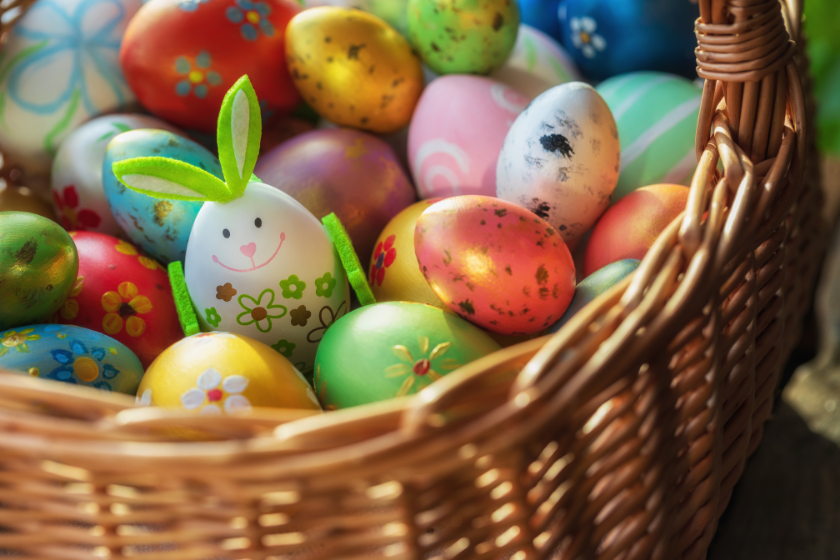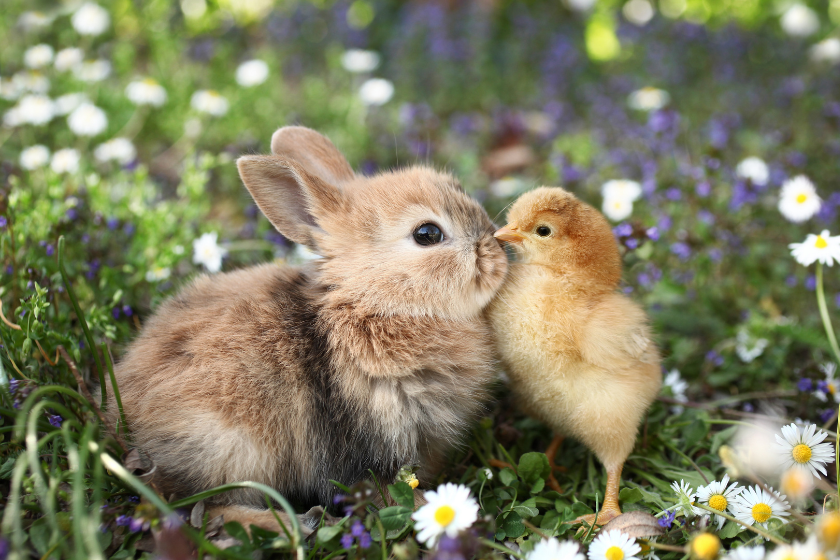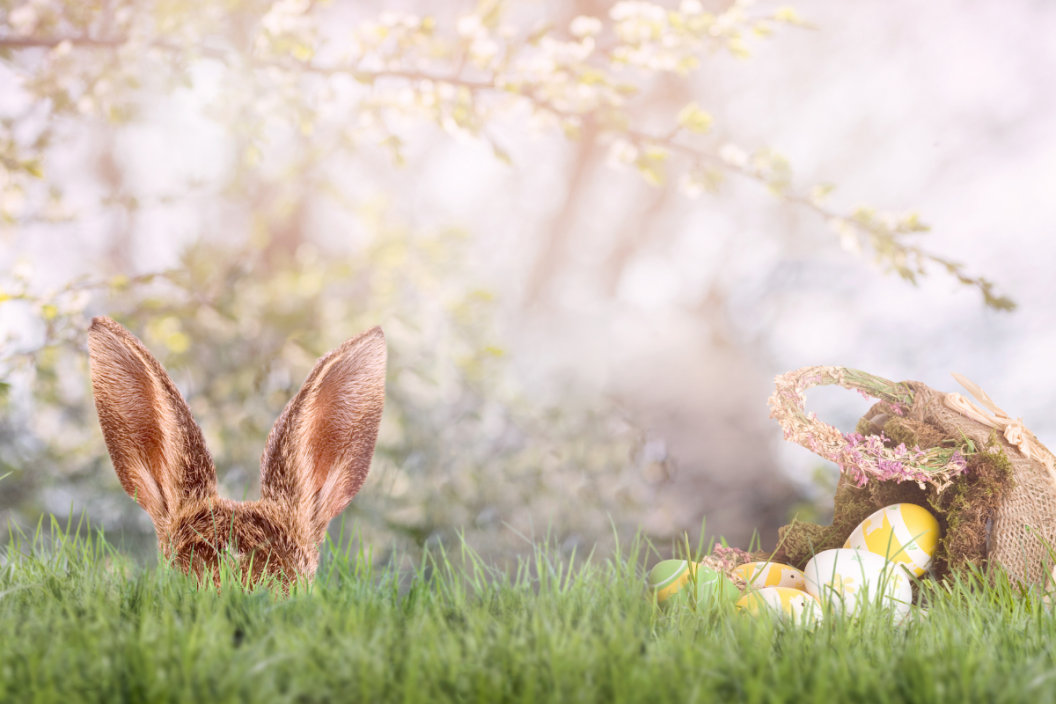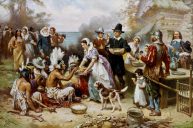What is the story behind the Easter Bunny and all those eggs?
The Saturday night before Easter Sunday, kids fall asleep to dreams of a hoppy messenger delivering candy eggs to baskets placed by the fireplace with care. But how did an egg-laying rabbit come to be the symbol of this holiday? To find out, you must look back at the origins of Easter.
Legends date the tale of the Easter Bunny back to its origins as a European pagan tradition that celebrated the goddess of spring, Eostre (also written Eastre and conveniently pronounced like the Easter holiday). Worshippers held a festival in honor of the goddess around the spring equinox, which meant the party date shifted slightly each year, similar to the Easter of today.
Eostre's ancient symbol was chosen as a rabbit presumably because the animal usually gives birth in the springtime when the weather is warm. With their incredibly high reproductive rates, rabbits also signify fertility. One pair of cats and their offspring could produce nearly 400,000 kittens in seven years, but rabbits blow that out of the litter box. In comparison, one female rabbit and her descendants have the potential to produce nearly 185 billion bunnies in the same amount of time.
It would make sense, then, that this incredible rate of fertility brought about Easter eggs, since eggs themselves can signify new life. Read on to find out more about how eggs and rabbits became symbols of Easter.
Origins of Easter Eggs

Some find that Easter eggs commemorate the 13th-century Christian tradition of omitting eggs from the diet during Lent, and feasting on them on Easter morning. Russians in the 19th century reportedly gifted bedazzled eggs to each other on Easter.
Others believe it was the immigration of Germans to America in the 1700s that brought the egg-laying rabbit tradition overseas. Historically, German immigrant children prepared nests the night before the holiday for the bunny to place its colorful eggs, as long as the youth were good that year. Much like American children leave a plate of cookies out for Santa Claus and carrots for his reindeer, 18th-century German kids kept a plate of carrots out for the Easter Bunny—in case he needed to refuel after all that bouncing.
Not all countries have the Easter Bunny. Switzerland has a cuckoo bird, Australia has the rabbit-like bilby, and parts of Germany celebrate with a fox. But in the United States, we have a floppy-eared bunny rabbit that brings painted eggs in Easter baskets. From eggs hatch yellow chicks, ducks, or geese, and so evolved the practice of giving feathered babies in the Easter season.
The chocolate and Easter egg hunts are just an added bonus.
How Are Easter and Passover Related?
A lot of people wonder how Easter and Passover are related. The Bible's New Testament explains the overlap if you prefer that resource, but to sum it up, these two holidays have always been tied together. They even share a similar name, with the Hebrew word for Passover being Pesach, and the French word being Paques. In the Bible, The Last Supper is actually just one of many Passover meals, and of course, Jesus's execution and later resurrection is why Christianity celebrates Easter in the first place.
Passover candy makes a beloved holiday even sweeter for many Jews, but chocolate Easter bunnies are typically not given at the end of the Passover meal. So the origin of Easter has many ties to the Jewish Passover!
Is Easter Also a Pagan Holiday?

So, what about pagan roots or pagan celebrations when it comes to the origin of Easter? Like many Christian holidays, Easter shares some roots with ancient pagan celebrations. Often it was easier for a young church to align its holidays with that of currently celebrated ones, reframing the reason behind the holiday to celebrate significant Christian events. This was even the case with some hymns, which take their chord structure straight out of many tavern songs that folks already knew how to sing!
As discussed above, many of the strange aspects of Easter that don't seem to line up with the Christian holiday are from an ancient celebration of the pagan goddess Eostre. Non-religious traditions, of course, include egg-rolling and egg hunts. One of our traditions includes egg hunts with the hounds in the backyard. We fill plastic eggs with dog treats and set up a dog-friendly Easter egg hunt!
Easter, also called Paschal, is celebrated on the first Sunday after the full moon that occurs on or just after the spring equinox. Based on our research above, Christ's resurrection should be celebrated on the first Sunday after the Jewish Passover meal but this is not always the case.
Plan those egg hunts accordingly as Holy Week can change! Christian Churches can always verify the dates if you're unsure.
Do you have any Easter bunny themed traditions you do every year with your family? Tell us on the Wide Open Pets Facebook page!
READ MORE: 15 Easter Bunny Jokes for a Hoppin' Good Time




